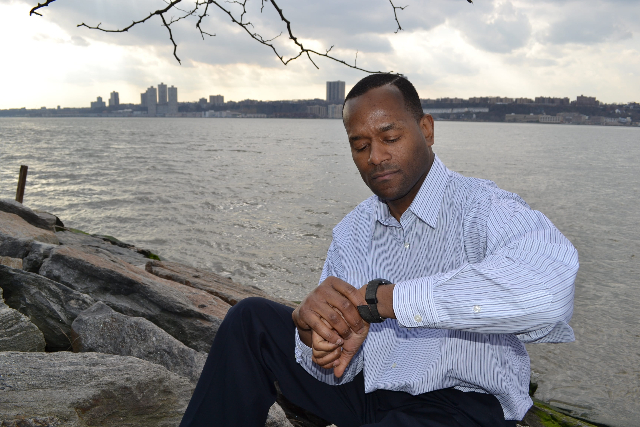A quick google search whatever you countless websites, resources, courses, and apps that proclaim that they are the number one method of learning a new language. Language learning is a personal journey that differs from person to person. It is not quite the same as learning other skills such as maths or cooking, because there is more than one right answer and more than one way to say what you want to say.
There is no blanket answer or scientific teaching method that will work best for all language learnings.
Factors such as interest levels, experience in language learning, and the amount of time you have to study are some of the factors that hinder answering the question easily. As one paper titled “There is no best method – Why?” points out, logically, if different combinations of teaching and learning methods work better for different people, one of these combinations will be the most efficient for each individual.
Learning a language isn’t able to be condensed into a simple recipe book. Spend x hours on a particular type of language learning tool or aid, before moving on to the next step in the process. By the end of it, you will be able to successfully speak your target language fluently!
Unfortunately learning isn’t quite like that. Language learning is a messy and winding journey. You may spend some time on a particular grammatical concept, and sort of get it but not really, and move on. After spending some time learning some other things, you may come back to that same grammatical concept and suddenly clicks!
There is no specific order that you need to learn most grammar. This means the different teachers teach languages differently, bowl with the aim of improving your language skills.
The quickest way to learn a language this is spend as much time as possible learning that language. Take classes, read books, listen to music, practice vocabulary, speak with natives and other language learners, practice writing in your target language. At the end of the day hard work is well give you the language skills the fastest.
If you would like to know more information about how to best go about learning a language, you can start with this post about learning languages at home, or how to best learn vocabulary and branch out from there.

How Long Will It Take For Me To Learn A Language?
Often when you ask someone how long they have been learning a language, they will give a response such as; two years, since high school, six months, etc. The problem with this response is that it doesn’t give you an idea of how much time and effort was specifically put toward language learning. Somebody who’s been learning a language since high school may be meaning that they have taken language classes a few times a week but that they never do homework.
It is more accurate to measure language learning by how much time you have dedicated towards active language learning, rather than how long since your first lesson.
A much more accurate response may be that somebody has been learning a language for 1,000 hours, or perhaps 500 or 2,000 hours. This is a much better description because it gives you an idea of how much effort has been put into learning the language.
Can I Learn A Language In A Week?
Language without any prior knowledge to any high level of fluency will take longer than a week. Even if you had nothing else to do for that entire week besides eating, sleeping, and learning, your brain would reach its capacity of learning very quickly.
It is possible to learn some phrases so that when you do travel abroad, you would be to say things such as “I’m sorry I don’t understand, could you repeat that in English?” and “Could you please direct me to the train station?” Phrases such as this would be useful, but for the average person, it would be unlikely that you could learn enough vocabulary to hold any type of conversation in your target language.
I have described in further detail in this post why learning a language in one week is unrealistic and get some more information about the amount of vocabulary needed to achieve fluency.

How Many Hours Will It Take To Learn A Language?
The main way to measure language learning time is through hours spent learning. There are different opinions as to the amount of hours needed to learn different languages. I have compiled a table below together guidelines of the number of hours you may expect to spend learning the language to achieve different levels.
It is important to note that hours spent learning means active learning, rather than, for example, passively listening to a foreign language without spending the effort to understand vocabulary.
| B1 | B2 | C1 | C2 | ||
| German | 350 – 650 | 600 – 800 | 800 – 1,000 | 1,000+ | Goethe Institue |
| French | 360 – 400 | 560 – 650 | 810 – 950 | 1,060+ | Alliance française |
| English | 350 – 400 | 500 – 600 | 700 – 800 | 1,000+ | Cambridge English Assessment |
It was surprisingly difficult to find resources that gave even a general idea of how many hours it would take to learn specific languages to different levels. The US Foreign Service Institute a different type of break down of the amount of a classroom hours required to reach profieicny in different languages which I have listed below.
Category one languages (600 – 750 class hours)
- Danish
- Italian
- Romanian
- Dutch
- Norwegian
- Spanish
- French
- Portuguese
- Swedish
Category two languages (900 class hours)
- German
- Malay
- Haitian Creole
- Swahili
- Indonesian
Category three languages (1,100 class hours)
- Albanian
- Azerbaijani
- Burmese
- Estonian
- Georgian
- Hindi
- Kazakh
- Kyrgyz
- Lithuanian
- Nepali
- Serbo-Croatian
- Slovenian
- Tajiki
- Thai
- Turkmen
- Uzbek
- Amharic
- Bengali
- Czech
- Farsi
- Greek
- Hungarian
- Khmer
- Lao
- Macedonian
- Polish
- Sinhala
- Somali
- Tamil
- Tibetan
- Ukrainian
- Vietnamese
- Armenian
- Bulgarian
- Dari
- Finnish
- Hebrew
- Icelandic
- Kurdish
- Latvian
- Mongolian
- Russian
- Slovak
- Tagalog
- Telugu
- Turkish
- Urdu
Category four languages (2,200 class hours)
- Arabic
- Japanese
- Chinese Cantonese
- Korean
- Chinese Mandarin
The reason that I find the measurement in classroom hours to be less useful, is that it isn’t clear how much of this time includes personal revision at home, and is based on the assumption that the language teacher is competent. Is one hour of good classroom time the same as one hour of personal study time?
Now the FSI State that this learning time is the average length for students to achieve proficiency. There will be different factors for all students that will change this learning time, which brings us back to the start of this post; there is no is scientifically proven method for learning a language, as all learners are different.
- Should Everyone In The World Speak A Universal Language?

- The Power of Immersing Yourself In A Language For Learning

- Start Your Language Learning Journey: Duolingo And Other Methods

- Does Learning A Language Help You Learn How Others Think

- Can You Learn a Language Without Learning Its Culture?

- Unlock Fluent Expression: Sentence Builders Across Languages

- Hidden Gems: Underrated Duolingo Languages Worth Learning

- The Ultimate German Pronunciation Guide

- Where To After Finishing Duolingo For Language Learning










